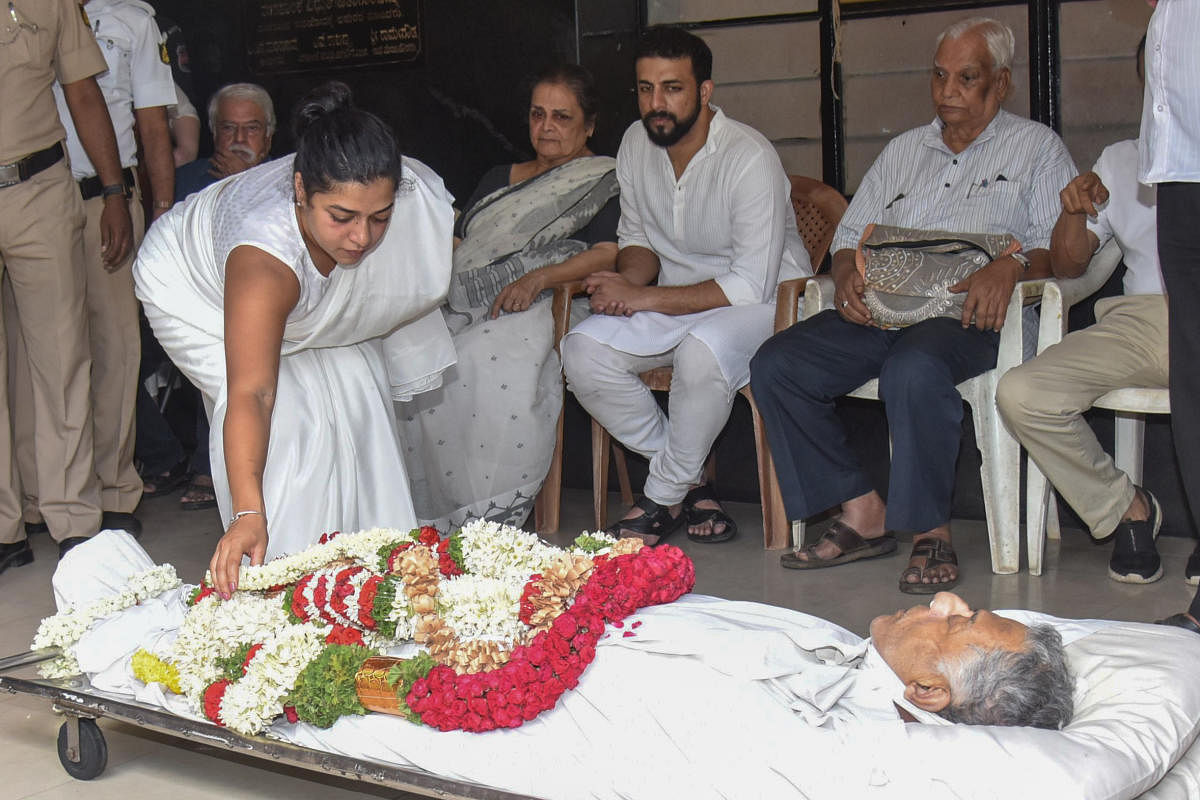
The Kannada theatre world received a new direction from Kailasam and Sriranga. Their guidance continued till the 1960s. By then, Girish Karnad must have written a couple of one-act plays. ‘Yayati’ was his first play. But it was ‘Tughlaq’ that changed our idea and vision of the theatre by giving a new direction to the theatre.
Tughlaq’s revolutionary energy weeded out all the plays we enacted in schools and colleges. We embraced the works of Karnad, Chandrashekhar Kambar and Lankesh. The standard was set by none other than Karnad.
Crystal clear clarity
His political ideology was as important as his theatre. Any person thinks twice before uttering something which he knew as ‘unpopular’ and the tendency to please will make him play to the gallery. Karnad never hesitated from speaking the truth and did not change his words to suit the listeners when he was clear about what was good for him, his country and its future.
I still remember the days after the demolition of Babri Masjid. I had joined Karnad, K Marulasiddappa and Vasudev in a visit to Ayodhya. He showed us the places and spoke as a leader. After returning from Ayodhya, there was a change in our thought process.
He had secured a PhD and received Padmashree and Padma Bhushan (awards). But never attached such titles to his name and never went after such honours. He would not sign autographs for the same reason. Wherever he went, youths would line up for his autograph. He did not see any value in such possessions. This personality is his contribution to society.
Memoirs of ‘Tughlaq’
I met Karnad through my distant relative YNK (late journalist-columnist Y N Krishnamurthy). I had written two letters to Karnad seeking permission to stage ‘Tughlaq’. Then, I used to visit his house.
It somewhere around 1964-65. ‘Tughlaq’ was released in book form in Dharwad and Manohar Granthamala (the publishing house) had organised a programme. Karnad was in England. I had travelled from Sagar to take part in the event presided over by (poet) Gopalakrishna Adiga. (Poet laureate) Da Ra Bendre, who released the book, praised Karnad’s ‘beautiful mind’.
I was responsible for Tughlaq’s first production. It was staged in Sagar, where I was teaching in a college. Later, it became a big hit in Hindi. Its plot, so different from the plays of that time, made me slightly worried about its appeal. There is no comedy. There is not even sadness but melancholy in the play. Tughlaq’s melancholy is the mood of society.
A touch of freshness
Of course, Karnad has written plays that make us laugh. His other plays based on mythological, historical and folk stories have gained huge popularity. Look at ‘Nagamandala’ which becomes close once we start reading it. Taking something from the past and making it contemporary gives it such a fresh feeling. Later, I also acted in ‘Kadu’ and ‘Kanooru Heggadathi’, the plays he directed.
The new perspective, new vision, courage and confidence that Karnad brought to the post-Independent India is invaluable. Neither the films nor the Jnanpith award inflated his ego. He never acted like a star.
(G K Govind Rao is a veteran critic, actor and theatre person)